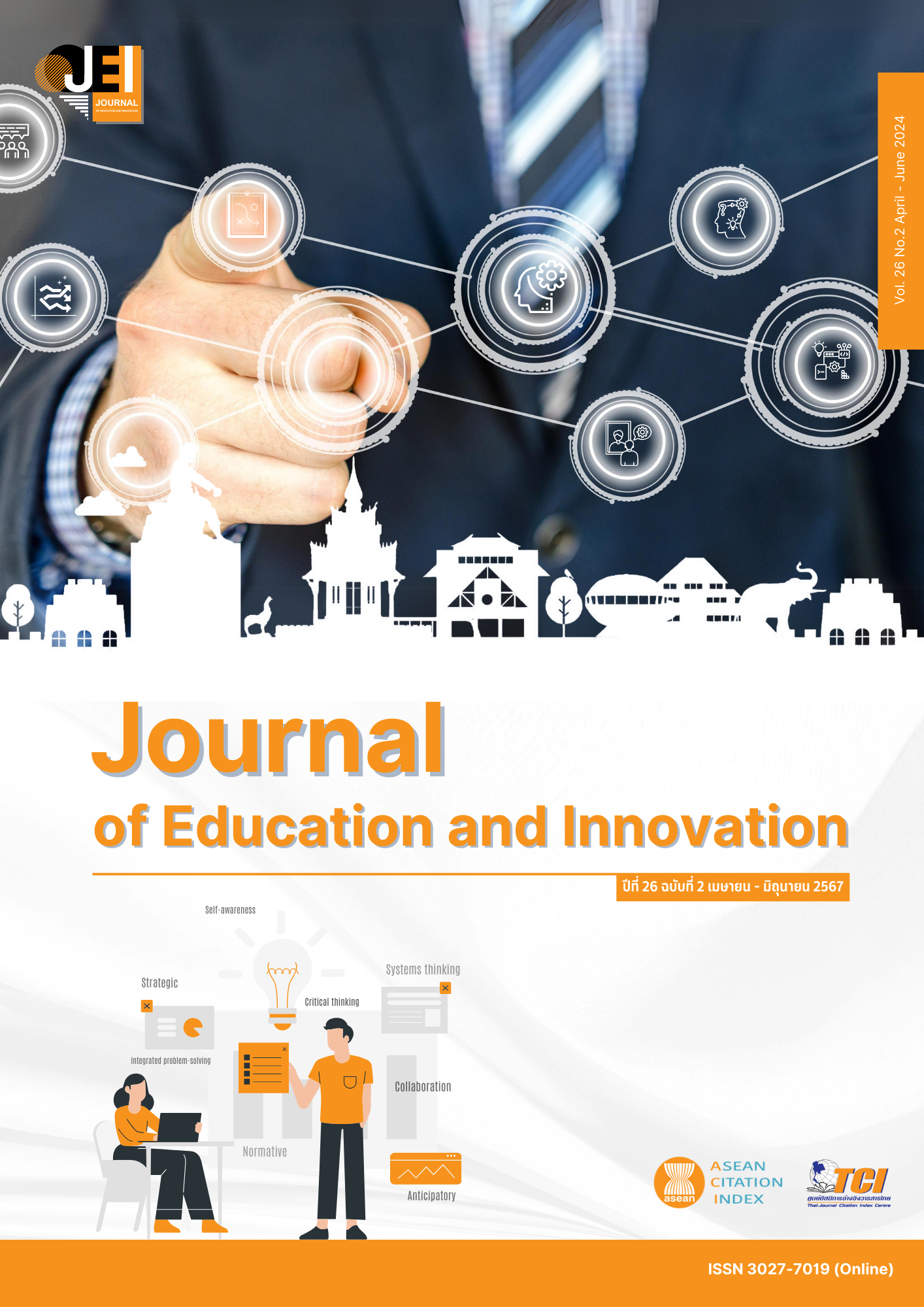DEVELOPMENT OF METAVERSE LEARNING ECOSYSTEM TO PROMOTE SELF-DIRECTED LEARNING OF UNIVERSITY STUDENTS
Main Article Content
Abstract
The purposes of this research were 1) to develop the efficiency of metaverse learning ecosystem to promote self-directed learning of university students, 2) to study students' learning achievements through the development of metaverse learning ecosystem to promote self-directed learning of university students, and 3) to assess the satisfaction of the development of metaverse learning ecosystem to promote self-directed learning of university students. The sample used in the research was 30 students who enrolled in the course “355230: Learning Environment Design” in the 2nd semester, academic year 2023. They were junior students from the Department of Educational Technology and Communication, Faculty of Education, Naresuan University. The research tools consisted of 1) a virtual learning ecosystem, 2) an e-learning achievement test, and 3) a self-directed learning satisfaction assessment form. The data analysis was presented by the average standard deviation and the Dependent T-test. The research results found that:
1. Development of the efficiency of metaverse learning ecosystem to promote self-directed learning of university students had the efficiency E1/E2 equals to 75.50/78.67, according to the 75/75 criteria.
2. Studying students' learning achievements through the development of metaverse learning ecosystem to promote self-directed learning of university students was statistically significant at the .05 level.
3. Students who learned through the development of metaverse learning ecosystem to promote self-directed learning of university students were satisfied at the very high level. There were 4 self-directed learning outcomes: 1) Smart Practice Skills, 2) Smart Creator Skills, 3) Virtual Instructor Skills, and 4) Smart Approach Skills.
Article Details

This work is licensed under a Creative Commons Attribution-NonCommercial-NoDerivatives 4.0 International License.
The owner of the article does not copy or violate any of its copyright. If any copyright infringement occurs or prosecution, in any case, the Editorial Board is not involved in all the rights to the owner of the article to be performed.
References
Alsakhnini, M. (2022). Applications of metaverse in education – an overview. Retrieved January 3, 2023, from https://www.researchgate.net/publication/36368009
E-Learning Industry. (2023). The metaverse in e-learning. Retrieved January 3, 2023, from https://elearningindustry.com/the-metaverse-in-elearning
Eoghan Quigley. (2022). ADDIE: 5 steps to effective training. Retrieved January 25, 2023, from https://www.learnupon.com/blog/addie-5-steps/
Faculty of Education. (2022). Qualifications standards framework Faculty of Education Naresuan University. Retrieved February 10, 2023, from https://ww2.edu.nu.ac.th/
Hwang, G. J., & Chien, S. Y. (2022). Definition, roles, and potential research issues of the metaverse in education: An artificial intelligence perspective. Computers and Education: Artificial Intelligence, 3, 100082.
Khammani, T. (2008). Science of teaching: Knowledge for effective organization of learning processes. Bangkok: Chulalongkorn University Publishing.
Na Songkhla, J. (2022). Metaverse, the future of education, cross border learning from the real world to the virtual world. Retrieved January 3, 2023, from https://www.chula.ac.th/highlight/64690/
Phansri, K. et al. (2023). Classical to Contemporary Theories of Learning. Journal of Human Sciences and Social Sciences, 42(2), 15-30.
Sannok, K., Wanpirun, P., Nilsuk, P., & Chalermsuk, N. (2019). Components and system architecture of a digital learning ecosystem for teaching and learning management with digital storytelling for teaching professional students. Journal of Education, 6(2), 87-100.


